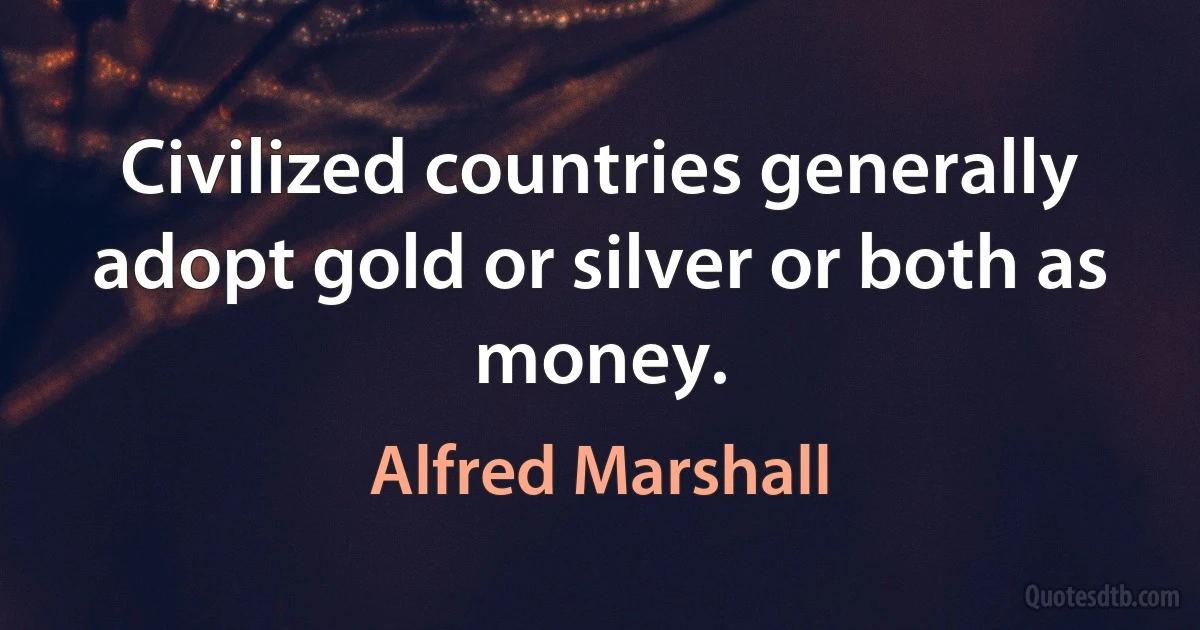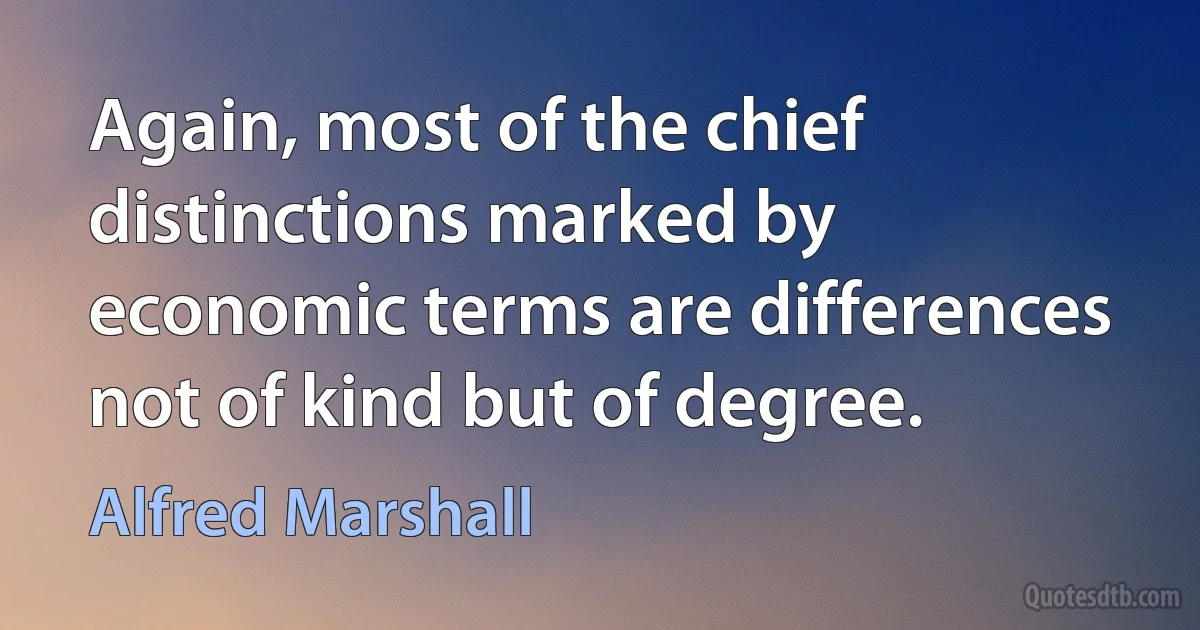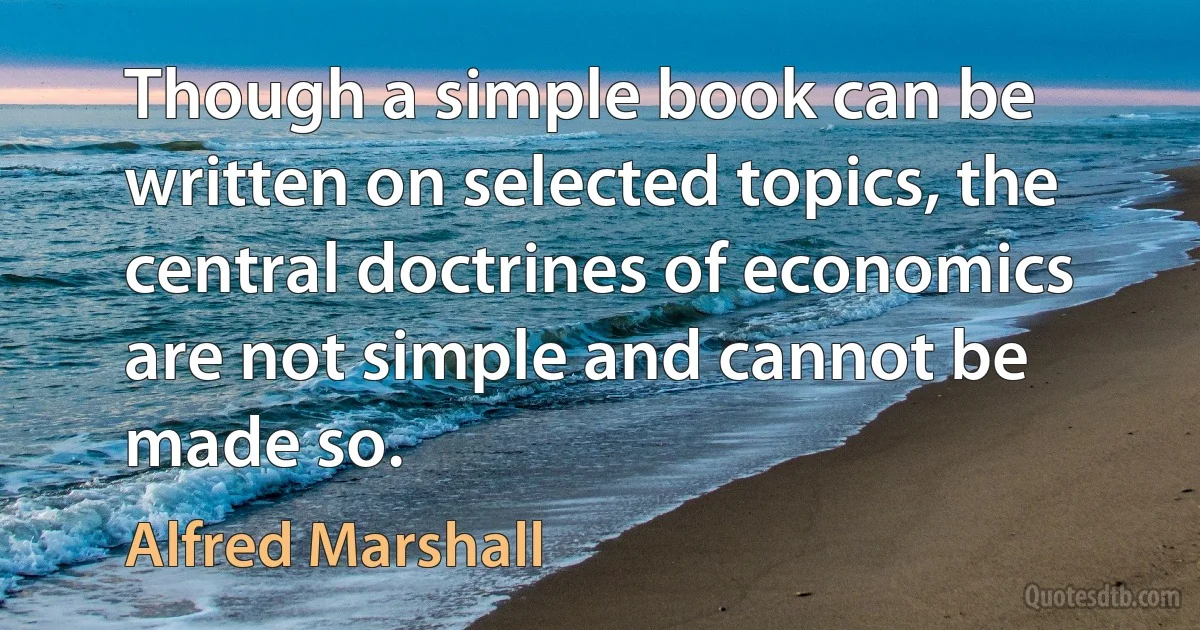Alfred Marshall quotes
There has always been a temptation to classify economic goods in clearly defined groups, about which a number of short and sharp propositions could be made, to gratify at once the student's desire for logical precision, and the popular liking for dogmas that have the air of being profound and are yet easily handled. But great mischief seems to have been done by yielding to this temptation, and drawing broad artificial lines of division where Nature has made none. The more simple and absolute an economic doctrine is, the greater will be the confusion which it brings into attempts to apply economic doctrines to practice, if the dividing lines to which it refers cannot be found in real life. There is not in real life a clear line of division between things that are and are not Capital, or that are and are not Necessaries, or again between labour that is and is not Productive.

Alfred Marshall
I am myself an uncompromising anti-Jingoe, a peace-at-almost-any-price man. Chamberlain is the only Unionist public man whom I have ever thoroughly distrusted. Excepting Napoleon, I believe that England's true greatness has had no such dangerous enemy since Lord North. When a radical, he delighted to dish his colleagues even more than to flout his opponents. He is now engaged in dishing his new colleagues and flouting his old friends.

Alfred Marshall



